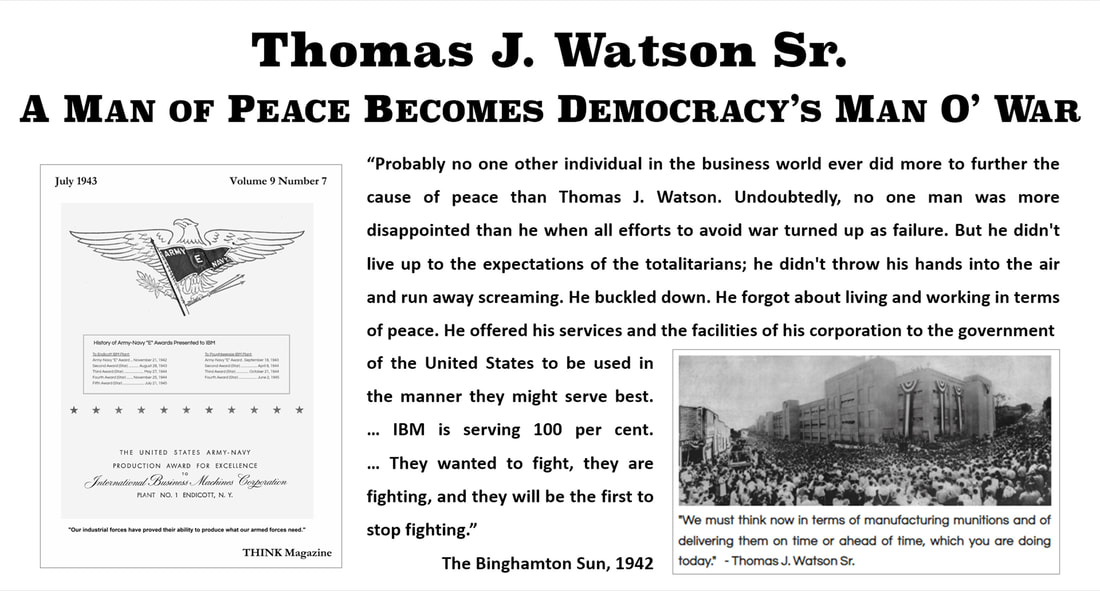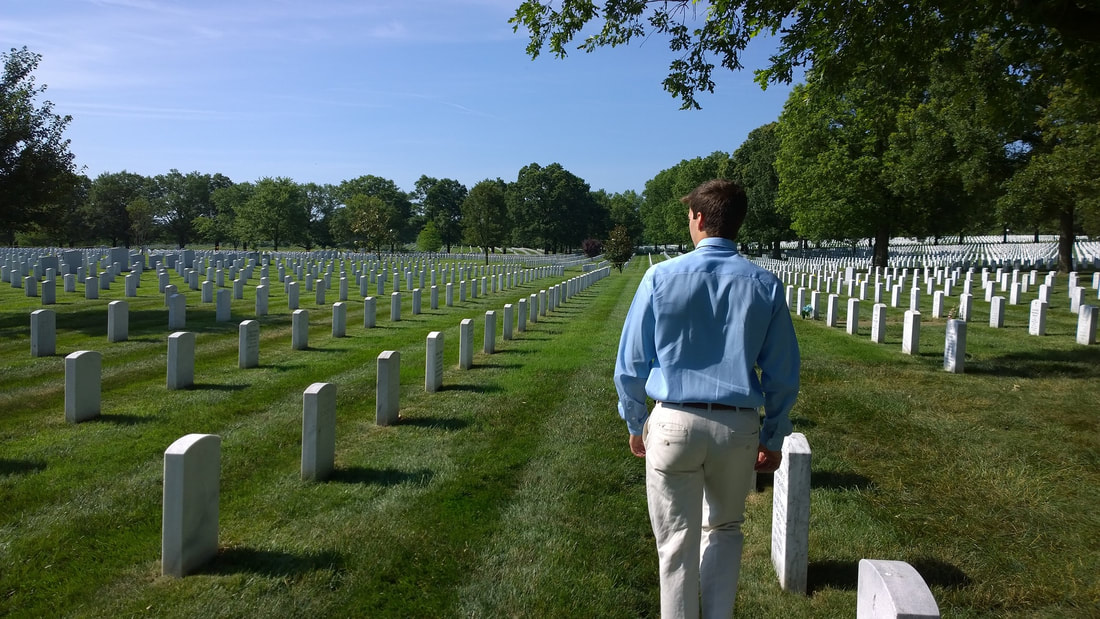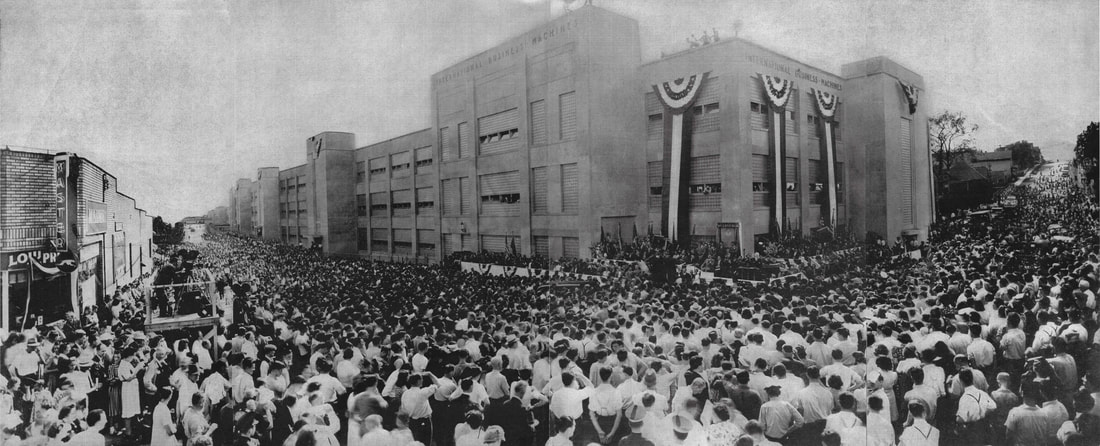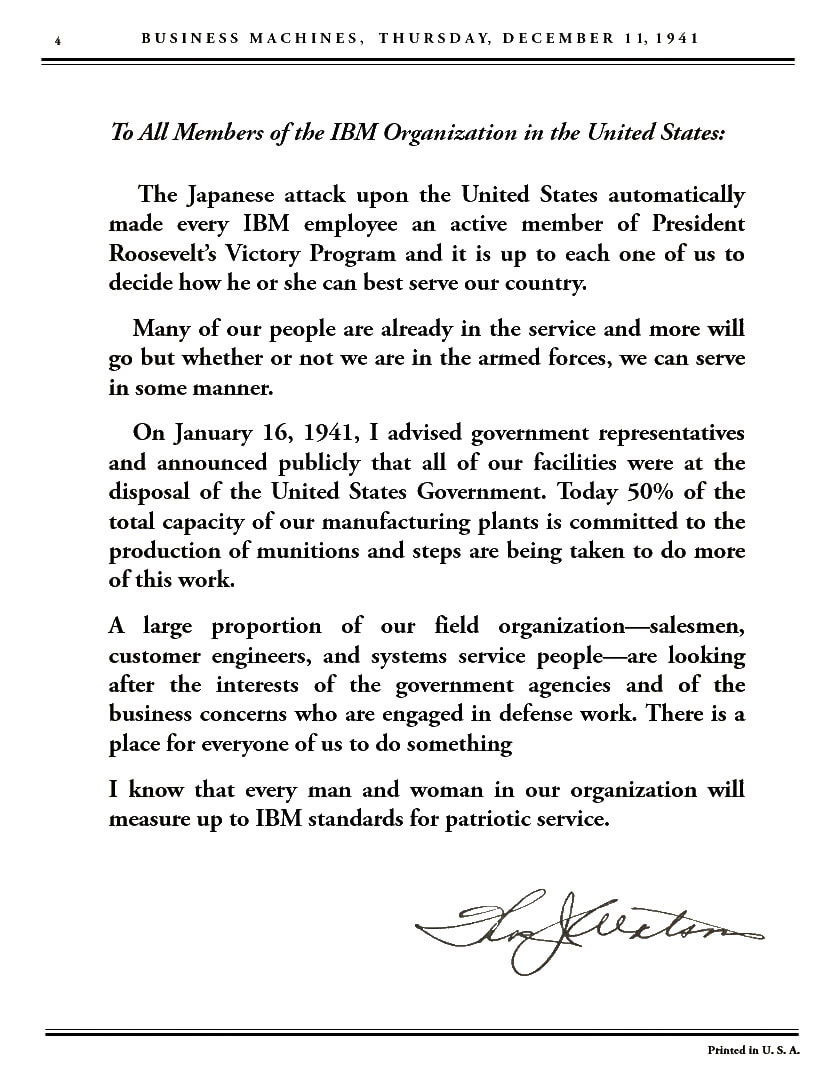A Man of Peace Becomes Democracy's Man O' War
A Decision Point: Abandoning World Peace through World Trade
Evolving from a Man of Peace to Democracy's Man o' War
|
Isn't it always hard for thoughtful individuals to move from peace to war?
At what point do you decide that you have to fight to preserve the democracy that you believe in? At what point do you decide to fight to preserve the lives of family and friends? Or—even the hardest decision—at what point do you send your sons and daughters to fight for the lives of others far away, for those who did nothing wrong for the horrors that beset them—besieged by a totalitarian leadership that has no compassion, no conscience? |
This Binghamton Sun editorial, talking about Thomas J. Watson Sr. could easily be an article about any individual faced with such a choice. Many forget that Mr. and Mrs. Watson sent both their sons—Tom and Dick—off to fight in World War II. It was a time for decisions and Tom Watson was evolving from …
… a "Man of Peace" into "Democracy's Man o' War."
… a "Man of Peace" into "Democracy's Man o' War."
The Binghamton Sun Editorial of September 19, 1942
|
Thomas J. Watson probably could be happier than he will be this afternoon when he steps up to lay the cornerstone of the new IBM war plant. . . .
It would be a much more pleasant ceremony to Mr. Watson if he were dedicating the Endicott structure to peace instead of war. But, because of the machinations of Hitler, Mussolini and Hirohito, that cannot be. They wanted to fight, they are fighting and they will be the first to stop fighting. |
"We must think now in terms of manufacturing munitions and of delivering them on time or ahead of time, which you are doing today." - Thomas J. Watson Sr.
|
Mr. Watson is a first rate example of how the American people, peaceful at heart, rose up as one when the enemy attacked. For years the great president of International Business Machines has been stumping for world peace but the world wouldn't listen. He warned all nations that to become embroiled in another conflict would cost more than they could bear in lives, dollars and morale; but they covered their faces and yawned.
To aggressor nations across the oceans, such talk about peace was a sign of weakness. The dictators believed that the American people as a nation were too weak-minded and too much in love with luxuries and good times ever to stand up and slug. True, the United States didn't want war but we were willing to fight for peace. That is an important little item which slipped past the attention of the dictators.
To aggressor nations across the oceans, such talk about peace was a sign of weakness. The dictators believed that the American people as a nation were too weak-minded and too much in love with luxuries and good times ever to stand up and slug. True, the United States didn't want war but we were willing to fight for peace. That is an important little item which slipped past the attention of the dictators.
|
Almost a year before Pearl Harbor, Watson Sr. turned over the resources of IBM to the United States Government.
|
Probably no one other individual in the business world ever did more to further the cause of peace than Thomas J. Watson. Undoubtedly, no one man was more disappointed than he when all efforts to avoid war turned up as failure. But he didn't live up to the expectations of the totalitarians; he didn't throw his hands into the air and run away screaming. He buckled down. He forgot about living and working in terms of peace. He offered his services and the facilities of his corporation to the government of the United States to be used in the manner they might serve best; and IBM is serving 100 per cent.
The new plant in Endicott which comes into its own today will stand for years and years as an industrial monument to Mr. Watson and all for which he stands. He will always be known as an international leader who fought to keep peace when we had it and who now is fighting to regain it. Thomas J. Watson will make many trips to Endicott before the shooting is over but his first journey to the Triple Cities after the new armistice will be his happiest. Perhaps he will choose to rededicate the new building. |
The Binghamton Sun Editorial, September 19, 1942



